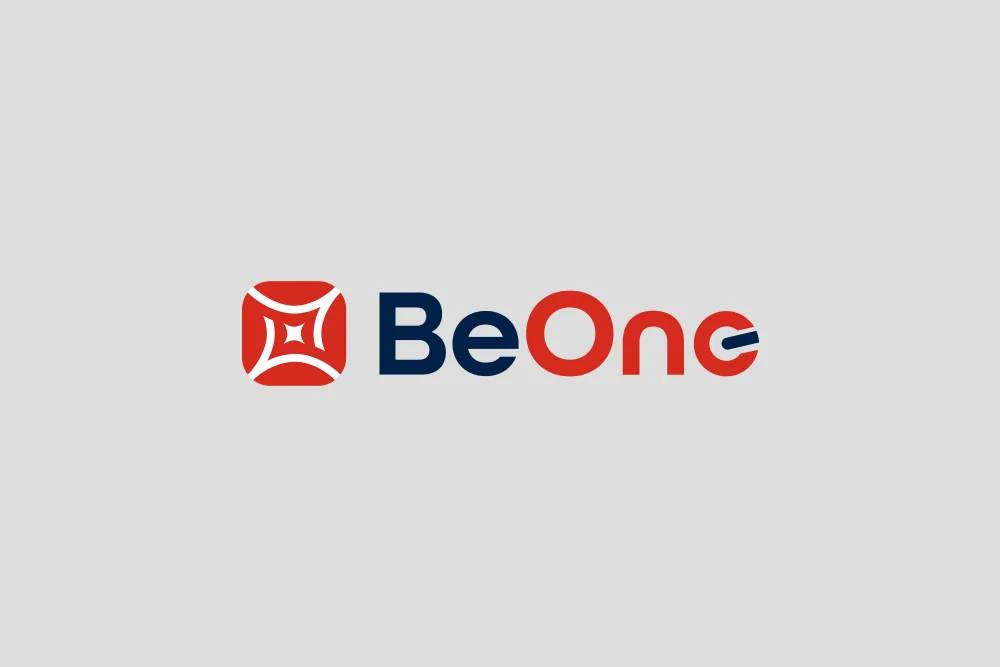
BeOne Medicines Earns FDA Breakthrough Therapy Designation for Sonrotoclax in Relapsed or Refractory Mantle Cell Lymphoma, Strengthening Its Global Oncology Leadership
BeOne Medicines Ltd., a leading global oncology-focused biopharmaceutical company, announced that the U.S. Food and Drug Administration (FDA) has granted Breakthrough Therapy Designation (BTD) for its investigational agent sonrotoclax, a next-generation and potentially best-in-class BCL2 inhibitor, for the treatment of adult patients with relapsed or refractory (R/R) mantle cell lymphoma (MCL).
In addition to this regulatory milestone, the FDA has also accepted BeOne’s application for participation in Project Orbis, an international regulatory initiative that enables concurrent submission and review of oncology products among multiple health authorities. This global collaboration could accelerate the time it takes for sonrotoclax to reach patients worldwide, marking a significant step forward in BeOne’s mission to transform outcomes for individuals facing difficult-to-treat blood cancers.
A Major Step Toward Transforming MCL Treatment
“Breakthrough Therapy Designation is reserved for medicines with the potential to transform outcomes for patients with serious diseases,” said Julie Lepin, Senior Vice President and Chief Regulatory Affairs Officer at BeOne Medicines. “This recognition affirms the strength of the emerging data for sonrotoclax and its potential to become a new standard of care for people with relapsed or refractory mantle cell lymphoma. Additionally, by participating in Project Orbis, we may be able to accelerate access to sonrotoclax, potentially helping patients faster than previously imagined.”
The FDA’s decision to grant BTD and include the therapy under Project Orbis was based on compelling early data from the BGB-11417-201 Phase 1/2 clinical trial, which evaluated sonrotoclax in adult patients with R/R MCL following prior treatment with both a Bruton’s tyrosine kinase inhibitor (BTKi) and anti-CD20 therapy.
Positive topline results from this study, announced earlier by BeOne, demonstrated that sonrotoclax achieved deep and durable responses, underscoring its potential to fill a critical gap in treatment for patients who relapse or fail to respond to current standards of care. Should ongoing development confirm these results, sonrotoclax could become the first and only BCL2 inhibitor approved for relapsed or refractory MCL in the United States.
BeOne plans to present full results from this trial at an upcoming major medical meeting. Meanwhile, a Phase 3 confirmatory trial, known as CELESTIAL-RRMCL (BGB-11417-302; NCT06742996), is already underway to further evaluate the safety and efficacy of sonrotoclax in this population.
Understanding the Significance of Breakthrough Therapy Designation and Project Orbis
The FDA’s Breakthrough Therapy Designation is reserved for investigational medicines that show early and substantial clinical improvement over existing therapies in serious or life-threatening diseases. The designation provides sponsors with intensive FDA guidance, organizational commitment, and the possibility of expedited development and review.
Project Orbis, established by the FDA Oncology Center of Excellence in 2019, represents a new era of global regulatory collaboration. Participating agencies, including those in Canada, Australia, Switzerland, Singapore, and others, work together to review promising oncology treatments concurrently, aiming to bring effective cancer therapies to patients faster worldwide.
By joining Project Orbis, BeOne can simultaneously engage with international health authorities, potentially leading to earlier approvals in multiple regions—a major strategic advantage in the race to meet global oncology needs.
A Portfolio of Regulatory Achievements
This latest recognition marks the first Breakthrough Therapy Designation for sonrotoclax and the second for BeOne’s hematology program. The company’s dedication to advancing precision oncology is reflected in its growing list of regulatory milestones for this candidate:
- Fast Track Designation for mantle cell lymphoma (MCL) and Waldenström macroglobulinemia (WM).
- Orphan Drug Designation for the treatment of adult patients with MCL, WM, multiple myeloma (MM), and acute myeloid leukemia (AML).
These designations collectively reinforce sonrotoclax’s strong potential as a transformative therapy across multiple B-cell malignancies, further anchoring BeOne’s position as a key innovator in hematologic oncology.
The Urgent Need in Mantle Cell Lymphom
Mantle cell lymphoma (MCL) is a rare, aggressive subtype of B-cell non-Hodgkin lymphoma (NHL) that originates in the mantle zone of the lymph nodes. It accounts for roughly 5% of all NHL cases worldwide, translating to about 28,000 affected individuals globally.
The disease is notorious for being diagnosed at advanced stages, and although initial treatments—often involving chemotherapy, BTK inhibitors, and immunotherapy—can induce remissions, nearly all patients eventually relapse or develop refractory disease.

The five-year survival rate for MCL hovers around 50%, highlighting the unmet medical need for novel therapeutic options capable of achieving deeper and more sustained remissions. For patients who progress after BTKi therapy, treatment options are limited, and outcomes are poor—underscoring the potential impact of innovative BCL2 inhibition strategies such as those offered by sonrotoclax.
Inside the BGB-11417-201 Phase 1/2 Study
The BGB-11417-201 (NCT05471843) trial is a global, multicenter, single-arm, open-label Phase 1/2 study designed to evaluate the safety, tolerability, and efficacy of sonrotoclax in adult patients with relapsed or refractory MCL who had previously received both anti-CD20 therapy and a BTK inhibitor.
A total of 125 adult patients were enrolled.
- Part 1 (Dose Escalation): Included 22 patients, who received either 160 mg or 320 mg of sonrotoclax daily to determine the optimal dosing regimen and assess tolerability.
- Part 2 (Dose Expansion): Enrolled 103 patients, all of whom received the recommended 320 mg daily dose following a ramp-up phase.
The primary endpoint of the study was overall response rate (ORR), as determined by an independent review committee (IRC). Key secondary endpoints included complete response (CR) rate, duration of response (DOR), and progression-free survival (PFS).
Preliminary data demonstrated robust anti-tumor activity, with a significant proportion of patients achieving rapid and durable responses, even among those heavily pretreated. Safety data showed that sonrotoclax was generally well-tolerated, with manageable adverse events consistent with its mechanism of action.
These findings laid the groundwork for the Phase 3 CELESTIAL-RRMCL trial, which aims to validate the efficacy and long-term benefit of sonrotoclax in a broader patient population.
Sonrotoclax: A Next-Generation BCL2 Inhibitor
Sonrotoclax (BGB-11417) represents BeOne’s bold step into the next era of apoptosis-targeting therapeutics. It belongs to a class of drugs known as BH3 mimetics, which mimic the body’s natural cell death signals by inhibiting the anti-apoptotic protein BCL2 (B-cell lymphoma 2).
The BCL2 protein plays a central role in helping cancer cells evade programmed cell death (apoptosis). Overexpression of BCL2 has been implicated in the development and persistence of various hematologic malignancies, including MCL, WM, chronic lymphocytic leukemia (CLL), and AML.
Preclinical and early clinical studies have shown that sonrotoclax is a highly potent and selective BCL2 inhibitor with a short half-life and no evidence of drug accumulation—an important pharmacologic distinction that could contribute to a more favorable safety profile and improved dosing flexibility compared to earlier-generation inhibitors.
Across its broad global development program, nearly 2,000 patients have been enrolled to date in studies evaluating sonrotoclax across multiple B-cell malignancies, including MCL, WM, MM, and AML. This extensive clinical dataset continues to support its potential as a best-in-class therapeutic candidate capable of delivering meaningful clinical benefits across multiple hematologic cancers.
BeOne’s Expanding Hematology Portfolio
The recognition of sonrotoclax through multiple regulatory designations underscores BeOne Medicines’ long-term vision to build a robust portfolio of targeted therapies aimed at reprogramming cancer cell survival pathways. By focusing on the biology of apoptosis, BeOne is working to develop medicines that address the core mechanisms driving treatment resistance in hematologic cancers.
The company’s hematology program also aligns with its broader oncology mission—to deliver scientifically driven innovation supported by precision medicine approaches, translational research, and global clinical collaboration.
Through partnerships with international academic centers, regulatory authorities, and patient advocacy organizations, BeOne continues to advance therapies that not only extend survival but also improve quality of life for patients living with difficult-to-treat malignancies.
The FDA’s Breakthrough Therapy Designation for sonrotoclax represents a pivotal achievement in BeOne’s journey to redefine therapeutic paradigms in B-cell malignancies. With this designation and participation in Project Orbis, BeOne is strategically positioned to accelerate development, regulatory review, and potential market access for sonrotoclax across multiple global regions.
As the company prepares to present comprehensive Phase 1/2 data and advance pivotal Phase 3 trials, the oncology community awaits further validation of sonrotoclax’s promise. If approved, it could become a transformative therapy—offering renewed hope to patients with relapsed or refractory MCL who currently face limited options and poor prognoses.
In the broader context of precision oncology, BeOne Medicines’ progress with sonrotoclax exemplifies the convergence of scientific innovation, regulatory collaboration, and patient-centered development, marking an important step forward in the fight against hematologic cancers.





